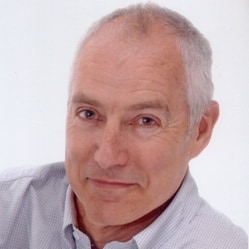The first Womens and Bleeding Disorders conference comes to a close – day 3
Quality of life is difficult to measure scientifically, which is why published research is often incomprehensible to the non-specialist – presenters often say more about the various instruments they used than the results they found. So it was a refreshing change to hear Naja Skouw-Rasmussen and Debra Pollard, both members of the EHC Women and Bleeding Disorders Committee, talk in plain terms about something that means so much to everyone on the receiving end of health care.
Naja began with a figure showing the domains of interest but she quickly moved on to interpreting their relevance to women with bleeding disorders (WBD). Scientific instruments are not, she noted, always the best way to capture the reality of living with a bleeding disorder because they miss the factors that affect quality of life for WBDs. These include understanding treatment options and support from family, friends, EHC member organisations and health professionals. Among the most important is the quality of relationships, both personally and in health care. Women face barriers that are external (lack of support) or internal (lack of confidence) and they change with time, age and treatment. WBDs need to recognise the aspects of their lives that help or interfere with achieving what’s important to them. These are the things that quality of life studies should aim to measure.

Debra’s review of psychosocial issues began by highlighting the attention devoted to physical health at the expense of other things that matter. Health is defined not as the absence of disease but positive mental, emotional, social and spiritual wellbeing. Women face challenges in all these respects. They struggle to be believed. They fight for a diagnosis or for treatment for their child. They manage the personal impact of heavy menstrual bleeding and its consequences for the social and sexual health of themselves and their families. They feel guilty and isolated. They risk their health when they put the needs of others before their own. But Debra cited three case studies showing that women have great strength and they can face down these challenges with the right support. Treatment centres and EHC member organisations have to stand by them and say, it’s OK to take time out to look after yourself.

The presentations resonated with the audience, several of whom recounted their own stories of barriers recognised and overcome. Others said they would take home what they had learned and change their practice. This was, in fact, a session that encapsulated the mood of the conference as a whole: supportive, affirmative, determined and forward-looking. Thanking speakers, organisers and participants alike, EHC Chief Executive Amanda Bok said the conference had been a huge endeavour and the hard work had been well rewarded. She pledged EHC would continue supporting women as part of EHC’s commitment to everyone with an inherited bleeding disorder.
